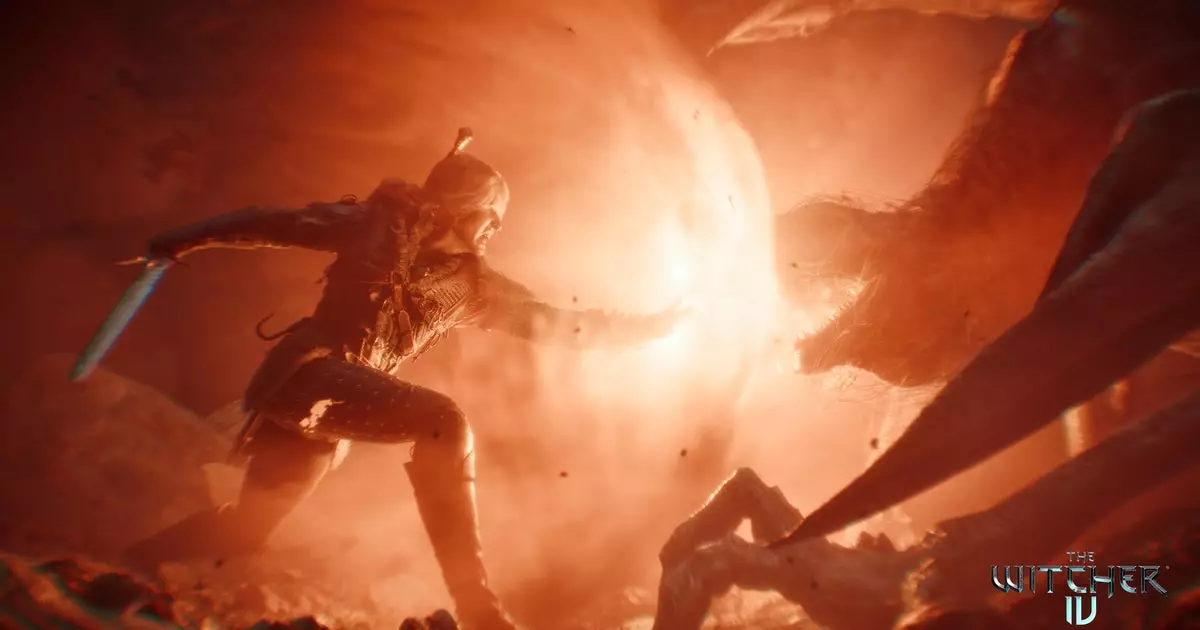The announcement of The Witcher 4, which will feature Ciri from The Witcher 3: Wild Hunt as its protagonist, has stirred a conversation across gaming communities. This decision is significant, not only because it marks a departure from the franchise’s traditional focus on the male hero Geralt but also due to the broader implications it holds for the representation of women in video games. While some nostalgic fans express discontent over the shift in lead characters, others engage in deeper dialogue regarding Ciri’s suitability for the role of a Witcher. The voices from CD Projekt Red’s developers provide insight into the thought process behind this groundbreaking decision.
Ciri’s ascendance as the protagonist of The Witcher 4 encapsulates a pivotal moment in gaming, highlighting a growing recognition of the need for diverse main characters in popular narratives. Games have historically leaned towards male protagonists, but Ciri’s character challenges this norm. Game director Sebastian Kalemba and narrative director Philipp Weber articulated that Ciri, who is often regarded as a witcher in the original books by Andrzej Sapkowski, possesses a rich narrative foundation. Her character development in The Witcher 3 laid the groundwork for her to step into a lead role, signaling a natural progression rather than a forced change.
What sets Ciri apart is her unique position: she embodies both the potential and unscripted journeys of a witcher who has yet to fully embrace her destiny. Unlike Geralt, established and hardened by countless battles, Ciri has room for growth. This dynamic allows players to engage with her character on multiple levels, shaping her path as she evolves into her role as a witcher. The developers contend that Ciri’s journey will invite players to explore her identity and choices in ways they could not with Geralt, who is already a fully realized entity within the game world.
The narrative premise of Ciri offers a chance to explore themes deeply embedded in the rich lore of The Witcher universe. The developers intend to tackle both gender politics and the societal expectations placed on women living in a male-dominated world. The narrative poses compelling questions about Ciri’s role as a female witcher. The Witcher series has always reveled in dark and complex themes, and Ciri’s presence will likely add a fresh lens through which to examine these issues.
Weber remarked that while the world is undeniably harsh—as inspired by dark folklore and medieval history—the potential for nuanced storytelling remains strong. By placing a woman in this traditionally male role, the game opens up dialogues around sexism, power dynamics, and the evolution of identity in a treacherous environment. Instead of being merely a reaction to the criticisms of prior portrayals, this creative choice acts as an insightful commentary on the struggles faced by women in various eras, thereby enhancing the thematic depth of the game.
The introduction of a protagonist like Ciri also raises questions about gameplay mechanics and balance. Players familiar with Ciri’s advanced abilities from The Witcher 3 may wonder how her powers will be addressed in this new installment. Will she start the game in a diminished state, or will there be adjustments to accommodate her unique skill set? Though CD Projekt has yet to clarify specifics, the team assures that they are proactively addressing gameplay concerns, ensuring that the transition feels coherent and satisfying for players.
Fundamentally, the game aims to blend Ciri’s supernatural capabilities with the familiar combat system that fans have come to appreciate. It is essential for developers to not only present Ciri as a character rich in potential but also ensure that her gameplay experience resonates with both new and returning players. This balance will be crucial in shaping players’ perceptions of her journey and the overall narrative cohesion.
As The Witcher 4 approaches its debut, it stands on the precipice of redefining its legacy. With a fresh protagonist and a commitment to exploring complex societal issues, the franchise may engage players in new and unexpected ways. Ciri’s evolution as a witcher will serve not only as an exploration of her character but also as a narrative device to dissect broader themes such as power, identity, and the struggles faced by women in a superficial and challenging world.
By ushering in this new chapter, CD Projekt exemplifies the potential for transformative narratives within gaming, underpinned by character-driven storytelling. While some may lament the departure from Geralt’s storied heroism, this shift embraces the opportunity for richer exploration of themes as diverse as growth, adversity, and empowerment. The Witcher franchise has long been celebrated for its depth, and with Ciri leading the charge, it is poised to delve even deeper into the complexities of its world. Players can expect an experience that is both familiar yet refreshingly unique, paving the way for a thoughtful examination of gender and identity in interactive storytelling.


Leave a Reply